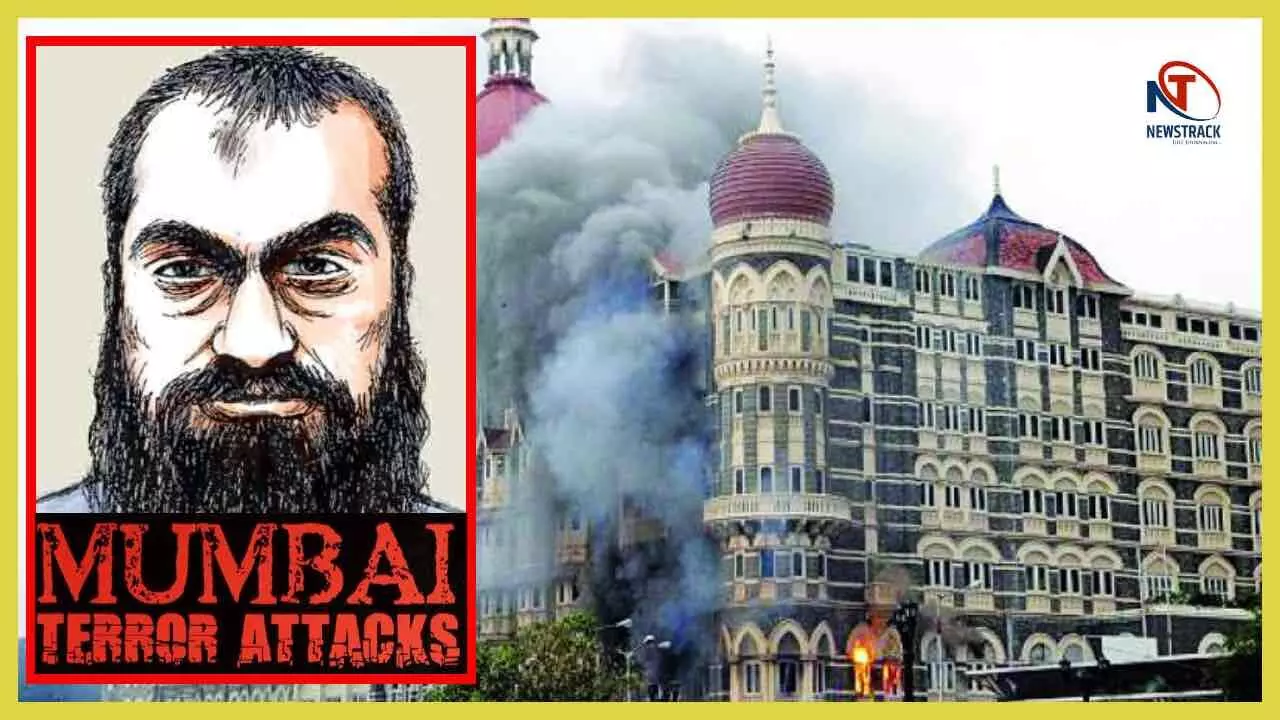TRENDING TAGS :
Abu Jundal: The 26/11 Terrorist Whose Case Is Still Ongoing
Abu Jundal 26/11 Mumbai Terror Attack: Abu Jundal, a resident of Beed, Maharashtra, is suspected of being the handler of the 10 Pakistani terrorists who infiltrated Mumbai.
Abu Jundal Terrorist 26/11 Mumbai Terror Attack
Abu Jundal Terrorist 26/11 Mumbai Terror Attack: As one of the key conspirators of the 26/11 Mumbai attacks, Tahawwur Rana has now been extradited to India and will soon face trial. Everyone is awaiting the day he receives the strict punishment he deserves. While all eyes are currently on Rana, one case related to the Mumbai attacks has remained stuck in the courts for years—that of Zabiuddin Ansari alias Abu Jundal, who was extradited from Saudi Arabia to India in 2012. He remains an undertrial and is currently lodged in Taloja Central Jail in Maharashtra.
What is the Case About?
Abu Jundal, a resident of Beed, Maharashtra, is suspected of being the handler of the 10 Pakistani terrorists who infiltrated Mumbai. Apart from the 26/11 case, Jundal is also a convict in a weapons recovery case, for which he, along with 11 others, was sentenced to life imprisonment by a special trial court in 2016. An appeal in this matter is currently being heard in the Bombay High Court.
In October 2012, a supplementary chargesheet was filed against Jundal in the 26/11 case, stating that he had trained the terrorists to contact and mislead Indian electronic media during the attack.
Special Judge G.A. Sanap framed charges against him in November 2015, though Jundal pleaded not guilty. The trial began with witness statements, but in 2018, the Bombay High Court put a stay on proceedings after the Delhi Police approached the court challenging the trial court’s order to produce “sensitive documents” related to Jundal’s travel.
Jundal claimed that he had been detained in Dammam, Saudi Arabia, and forcibly brought to India. However, the Delhi Police maintains that he was arrested outside the airport upon entering India. Last year, the trial court permitted the police to interrogate Jundal to help identify another key absconding accused.
As of now, the trial in the 26/11 case against Zabiuddin Ansari alias Abu Jundal has been on hold for six years, due to the stay imposed by the Bombay High Court. The case cannot proceed unless the High Court delivers its verdict on the Delhi Police’s petition. The last hearing took place in April 2018.
Who is Jundal?
The son of an insurance agent and the only brother to four sisters, Abu Jundal trained as an electrician from an ITI in Beed and later enrolled in a graduation course at a government college in Aurangabad. Police say that during this period, he became actively involved with the Students Islamic Movement of India (SIMI).
He allegedly travelled with his college friend Fayyaz Zulfikar Kagzi to Karachi via Kathmandu in 2005 to meet Lashkar-e-Taiba commanders. This was part of Lashkar’s efforts to build a cadre inside India. A new jihadi group was subsequently formed. For their attacks, Lashkar sent a consignment of 16 assault rifles, 4,000 rounds of ammunition, and 43 kg of plastic explosives packed in computer boxes. However, the shipment was intercepted on May 9, 2006, based on Intelligence Bureau inputs, though Jundal managed to escape.
He then travelled through multiple countries and reached Bangladesh, where a Lashkar operative arranged a fake passport and Pakistani visa. He eventually reached Karachi, where he spent six months in a Lashkar camp near Muzaffarabad. Just before the 26/11 attacks, he formally joined Lashkar.
Testimony from Ajmal Kasab, the only surviving 26/11 terrorist, revealed the involvement of an Indian in the attacks. Kasab told police that a trainer named Abu Jundal had taught the attackers basic Hindi words. Following extensive intelligence work, the IB traced Jundal in Saudi Arabia in 2012. However, complications arose when the Pakistani embassy in Riyadh claimed that the passport identifying Jundal as “Riyasat Ali” was genuine. The case became complicated, but DNA profiling confirmed his identity, leading to his deportation from Saudi Arabia in 2012.
Now, Jundal argues in court that his extradition to India was carried out illegally. Overall, the case continues to drag through the judicial system. Even in the Aurangabad arms haul case, in which Jundal and his co-conspirators were convicted, several appeals have been filed, and hearings are ongoing in the Bombay High Court.
In summary, while justice has advanced in some aspects of the 26/11 investigation, key cases like that of Abu Jundal remain unresolved—awaiting judicial clarity, caught between legal complexities and procedural delays.


